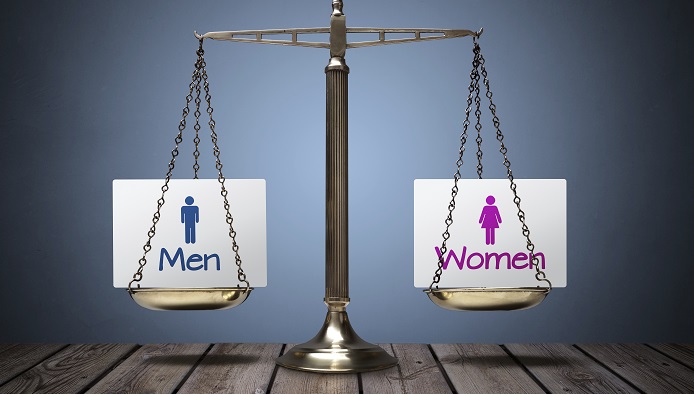
The UK has dropped from its position as the 15th most equal nation in 2018 to the 21st within the 2019 gender equality rankings. Despite consecutive governments pledging to tackle gender imbalance in the UK, the country has not only dropped six places in the global rankings for gender equality, but it could take 100 years to fully close the gender pay gap.
The World Economic Forum (WEF) has published its global rankings for gender equality for 2019 and put the UK in 21st place. This is six places lower than the previous year. Albania, Canada, Costa Rica, Latvia, Switzerland, South Africa and Spain have now all overtaken the UK in closing the gender gap since the last review in 2018. The gender equality audit takes an in-depth look at education, political influence, economic gain and health.
Slow progress in gender equality
The WEF said that so little progress had been made in tackling the issue, that at the current rate it would take 100 years to finally close the gender equality gap. The WEF believes that even this timeline can only be achieved if countries take direct action in tackling gender inequalities. This is despite women taking on high-profile roles such as leaders of New Zealand, Germany and Finland, as well as leadership roles at the World Bank and the European Central Bank.
Progress in politics still remains slow, the WEF said. Women hold just 21% of ministerial positions worldwide; however, the WEF hopes that the “role model effect” would speed up improvement.
Top ten countries for gender equality
Iceland topped the table for gender equality in 2019, just as it did in 2018. Pakistan, Iraq and Yemen held the bottom three positions.
The top then countries for gender equality are:
- Iceland
- Norway
- Finland
- Sweden
- Nicaragua
- New Zealand
- Ireland
- Spain
- Rwanda
- Germany
The gender wage gap in the UK was 16%, compared with 7% in Sweden and Norway, said the WEF. In the UK, more than three times the number of women are in part-time roles compared with men. It added that there was also “massive inequalities in almost all of [the UK’s] fastest-growing job clusters of the future.” This includes cloud computing, engineering and artificial intelligence.
Lack of women in UK politics
Britain’s latest ranking sees it fall behind some developing countries and most rich ones. However, it is placed ahead of the USA. The WEF said that the UK’s poor performance in the rankings and fall in position reflects the poor level of female representation in politics and because women are on average paid much less than men.
“[The] UK’s economic gender gap comes in at 58th worldwide, brought down by big gaps in the estimated earned income of women compared to men (102nd) as well as straightforward wage inequality (76th),” the WEF said.
The global economic gender gap
WEF highlighted that economic participation was a “major battlefield” and the global economic gender gap will take up to 257 years to close. Last year it put this figure at 202 years. The WEF identified three main reasons for why this area had declined:
- Women are more likely to hold jobs that have been the most affected by technology and automation such as retail and clerical jobs.
- The wrong industry. Women are not entering job roles that are experiencing high growth in volume and salaries. This leaves many women in middle to low paid jobs that have remained stagnant.
- Less access to capital. Women are less likely to have access to funding that enables them to become entrepreneurs, according to WEF.
Growing urgency
“This year’s report (2019) highlights the growing urgency for action,” said Klaus Schwab, founder of the WEF.
“Without the equal inclusion of half of the world’s talent, we will not be able to deliver on the promise of the fourth industrial revolution for all of society, grow our economies for greater shared prosperity or achieve the UN sustainable development goals. At the present rate of change, it will take nearly a century to achieve parity, a timeline we simply cannot accept in today’s globalised world, especially among younger generations who hold increasingly progressive views of gender equality.”
Would you like support or advice on any HR or employment law related issue? Call HR Solutions on 0844 3245840 or visit www.hrsolutions-uk.com/hr-services for more information about our outsourced HR services.








